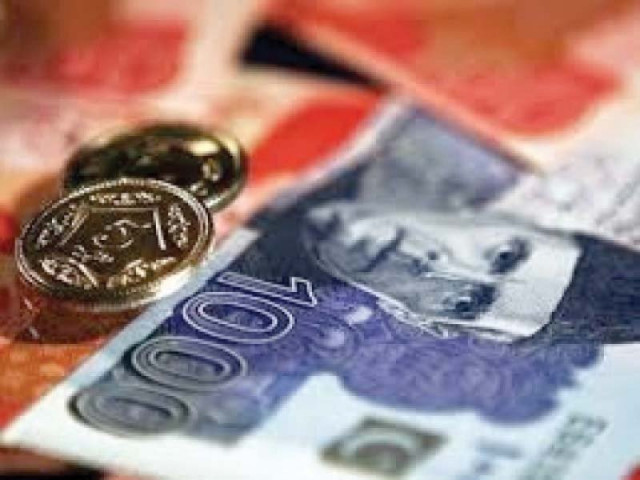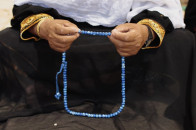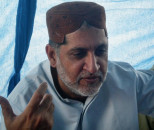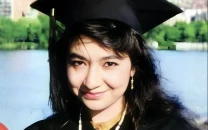Govt invites opposition to draw up charter of economy
National Assembly continues debate on price hike for third straight day

National Assembly continues debate on price hike for third straight day. PHOTO: FILE
During the session, the opposition again came down hard on the PTI-led government’s economic policies, and mocked Prime Minister Imran Khan’s initiatives of “Langars and Tandoors”, and warned that poor people were badly affected due to worsening economic conditions.
Responding to Adviser to Prime Minister on Finance Dr Hafeez Sheikh’s speech in the house on Wednesday, PML-N’s Ahsan Iqbal said opposition’s concerns were justified as the government itself admitted that people were facing the difficulties because of price hike and inflation.
“Food inflation [stands] at 24% in rural areas” and the government believed that 200 million people live in a village and could be fed through a couple of “Langars and Tandoors”, he said. He called for reducing general sales tax on the agriculture sector.
Speaking about the current account deficit, he said what the government did not understand was that it shot up because of the large amount of investment in development projects. “They had failed to understand is that once these projects completed, the deficit would have come down.”
Defending the policies of the previous governments, Iqbal said the PTI leaders had been criticising the PML-N “at every step of the way” but “they are asking us not to criticise them for taking the same measures. “If these [PMl-N’s] measures were so bad, why are they carrying them out today?”
Presenting statistics, Iqbal sought to prove that the previous PML-N government was better than the current PTI-led government. He said the previous government invited investments and built industrial units but the present one was "unable to lay a single brick", he added.
"This year the deficit will soar to 9%. We left defence budget at $9 billion, they cut it to $7 billion. During our tenure, investment's share [in GDP] was 13%, today it is 11%. Inflation was 5% but it is 14% now,” he said.
“We left rupee at 115 to a dollar, which had now reached 156," he said, adding that the government borrowings during the past 18 months equalled the amount borrowed by the PML-N government in its entire tenure of five years.
In 2018, Iqbal said, the World Bank had projected a growth rate of 6%, but in 2019 it forecast the growth of 2%. The nation should be informed about the “actual reasons”, why the growth rate had slowed down, he stressed.
He also slammed the government deal with the International Monetary Fund (IMF). "It does not concern the IMF if poverty will rise in the country or the unemployment will increase. It is the job of the government to negotiate a package that serves the interests of the people," he added.
“This is the reason that the country has sunk into an economic crisis. And if we criticise them, they say that government and the military are on the same page, but they [government] are not on people’s page,” he continued.
“They have brought a bad name to national institutions. These institutions did not tell them to give such a budget, these institutions did not tell them to bring inflation,” he said. “They need to stop hiding behind national institutions and stop telling the people that the institutions are faulty.”
He accused the government of pursuing the agenda of victimising the opposition. "Today every investor – from Rs0.5 million to Rs5 billion – is taking out his investment. Pakistani youth are compelled to emigrate to America or Australia," he added.
Iqbal said that the government would have to go to save the economy. “This economic crisis is man-made,” he said. “The government has no solution to pull the country out of the crisis, therefore fresh transparant elections are necessary,” he added.
Responding to Iqbal’s criticism, Food Security Minister Khusro Bakhtiar said the government was facing the economic challenges, including the rising inflation and stagnant exports. He invited the opposition to work out a charter of economy.
“We need to think across party lines on how we will run this country, when the volume of debt is at 78%. We will have to pay the principle amount and the interest on it,” Bakhtiar said, urging parliament to draw up a national economic charter instead of doing politics over the economy.
Referring to Iqbal’s statement that the government faced troubles because of “low revenues”, the minister said that at present there were 5 million bank accounts in the country but only 500,000 account holders were the taxpayers.
Dr Abdul Hafeez Shaikh sounds warning on economy
“Even if we generate Rs5 trillion with a 12% tax-to-GDP ratio, the federal government has to give around Rs3 trillion to the provinces. So the federal government already starts with a deficit,” the minister said.
“How will this country be run, even if we earn 5 trillion with a 12pc tax-to-GDP ratio, then the federal government then has to give around 3 trillion to the provinces. So the federal government already starts at a deficit.”
He said on the one side, Pakistan had been facing the challenge of rising population while on the other its per-acre yield was low. “By the time Pakistan turns 100, the country will have to feed 400 million people from existing resources,” he added.
He said the federal government had held a meeting on the issue of wheat and the Sindh government had committed to procure 1.4 million tonnes a year. He added the prices of agricultural products depended on demand and supply and the government was taking steps to keep prices low.
Former prime minister Raja Pervaiz Ashraf said that at present Pakistan had the lowest economic growth rate in the region. He added poor people were badly affected because of the worsening economic conditions.
During the question Hour, Omar Ayub – who was involved in a kerfuffle with the PPP lawmakers on Wednesday – was again caught in a noisy protest, when he accused the PML-N and PPP governments of setting up plants plants by taking commissions on them.
While the opposition lawmakers protested in the house, Ayub retorted: “When the oppositions asks a question it must have teh courage to listen to the reply. Ayub also told the lawmakers that 22,240 vacancies would be filled in his ministry, out of which 10,250 posts had been advertised.
During the proceedings, Speaker Asad Qaiser gave his ruling on Wednesday’s rowdy scenes in the house after Ayub referred former president Asif Zardari as ‘Mr ten per cent’. “What happened yesterday was sad,” he said.
"The members must speak in the house but they cannot abandon decorum. Regardless of the treasury or the opposition, I will not tolerate any repeat of such an incident, I will take action," the speaker ruled.
Earlier, Parliamentary Secretary for Commerce Aliya Hamza Malik pointed out that the term of 'Mr ten per cent' was used by British newspaper Daily Mail, adding that "anyone can google it". Her remarks again irked the PPP lawmakers.
Raja Pervaiz Ashraf said that the government wanted to vitiate the environment. In the meanwhile, Shagufta Jumani point out the lack of quorum. To that the speaker adjourned the session until Friday.
At the outset, the house passed a resolution to express solidarity with China in the wake of the outbreak of coronavirus. The resolution said that Pakistan stood by China in every step in its fight against the epidemic.



















COMMENTS
Comments are moderated and generally will be posted if they are on-topic and not abusive.
For more information, please see our Comments FAQ